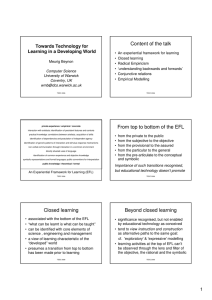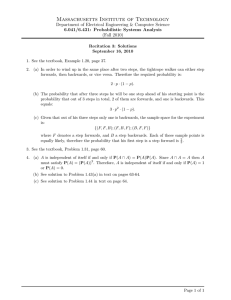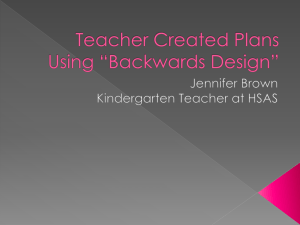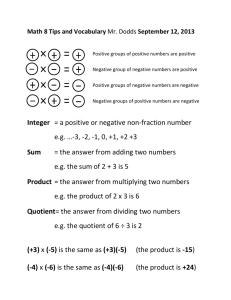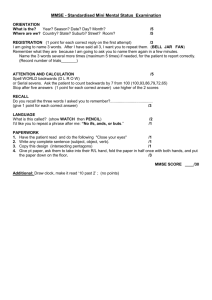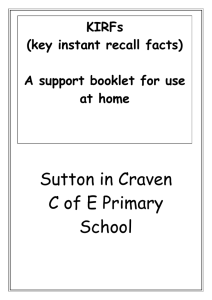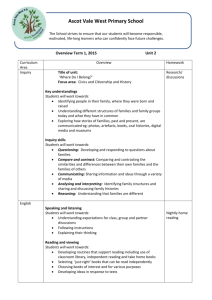Understanding backwards 03/11/2011
advertisement
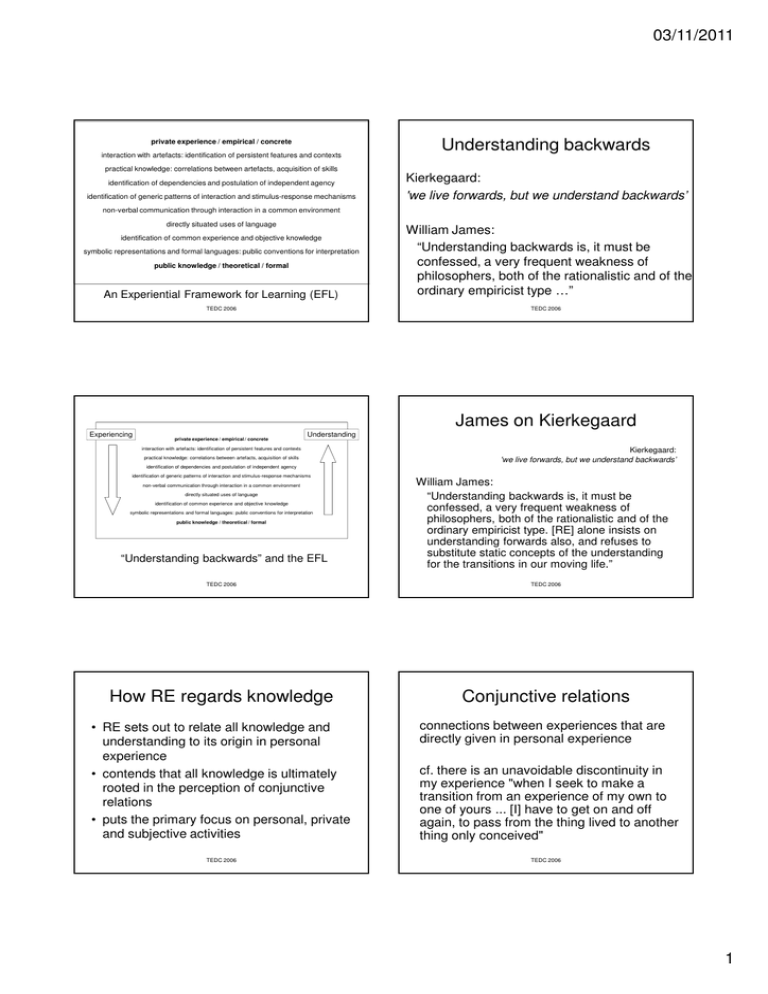
03/11/2011 private experience / empirical / concrete interaction with artefacts: identification of persistent features and contexts Understanding backwards practical knowledge: correlations between artefacts, acquisition of skills identification of dependencies and postulation of independent agency identification of generic patterns of interaction and stimulus-response mechanisms Kierkegaard: 'we live forwards, but we understand backwards’ non-verbal communication through interaction in a common environment directly situated uses of language identification of common experience and objective knowledge symbolic representations and formal languages: public conventions for interpretation public knowledge / theoretical / formal An Experiential Framework for Learning (EFL) TEDC 2006 William James: “Understanding backwards is, it must be confessed, a very frequent weakness of philosophers, both of the rationalistic and of the ordinary empiricist type …” TEDC 2006 James on Kierkegaard Experiencing private experience / empirical / concrete Understanding interaction with artefacts: identification of persistent features and contexts practical knowledge: correlations between artefacts, acquisition of skills Kierkegaard: 'we live forwards, but we understand backwards’ identification of dependencies and postulation of independent agency identification of generic patterns of interaction and stimulus-response mechanisms non-verbal communication through interaction in a common environment directly situated uses of language identification of common experience and objective knowledge symbolic representations and formal languages: public conventions for interpretation public knowledge / theoretical / formal “Understanding backwards” and the EFL William James: “Understanding backwards is, it must be confessed, a very frequent weakness of philosophers, both of the rationalistic and of the ordinary empiricist type. [RE] alone insists on understanding forwards also, and refuses to substitute static concepts of the understanding for the transitions in our moving life.” TEDC 2006 TEDC 2006 How RE regards knowledge Conjunctive relations • RE sets out to relate all knowledge and understanding to its origin in personal experience • contends that all knowledge is ultimately rooted in the perception of conjunctive relations • puts the primary focus on personal, private and subjective activities connections between experiences that are directly given in personal experience TEDC 2006 cf. there is an unavoidable discontinuity in my experience "when I seek to make a transition from an experience of my own to one of yours ... [I] have to get on and off again, to pass from the thing lived to another thing only conceived" TEDC 2006 1 03/11/2011 Examples of conjunctive relations “connections between experiences that are directly given in personal experience” – as is the relationship: • between an object’s location and its shadow • between notes of a musical score and keys on a keyboard • between a name and a pet animal • between two experiences of the same place at different times • between experiences of two places on the same journey TEDC 2006 Nature of conjunctive relations • • • • • highly personal in nature dependent on context and observer operating in the realm of the pre-articulate in need of no additional explanation having extremely broad semantic content … qualities particularly relevant to learning activities outside the scope of closed learning TEDC 2006 2
